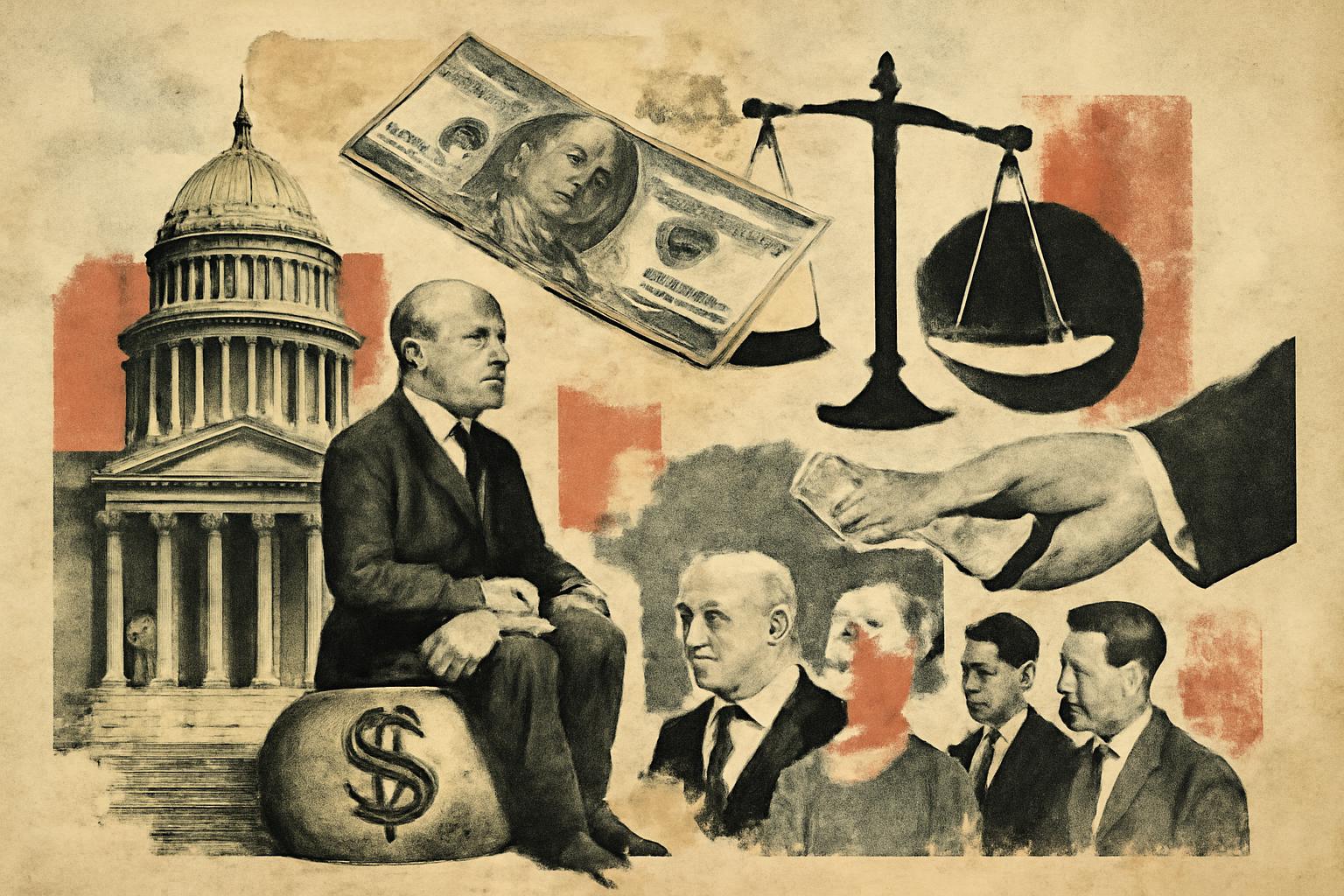The disclosures reveal a sprawling, highly diversified portfolio anchored in bonds and blue-chip stocks, with heavy positions in tech, finance, and consumer goods, plus a bold slice of crypto gains. It includes names like Citigroup, Morgan Stanley, Microsoft, Alphabet, Meta, Nvidia, Apple, Tesla, Berkshire Hathaway, JPMorgan, Pfizer, Coca‑Cola, and Home Depot, with crypto bets running into the billions and a notable investment by Trump Media & Technology Group in Bitcoin and other currencies. There are hints of international exposure through dealings tied to Middle East ventures and luxury projects, and proposals linking policy favors (tariffs on chips, special exemptions for Apple tied to domestic investment pledges) to political action. Crucially, there’s no blind trust, but rather asset management by family members, which critics say blurs the line between private gain and public duty. Forbes pegs the net worth around several billion, underscoring how political power has real, market-seeking value in a system that pretends to separate public service from private wealth.
From a libertarian vantage point, this is Exhibit A of why concentrated political power corrupts the relationship between the citizen and the state. When officeholders command coercive authority over markets, wealth and opportunity bend toward those who can access, shape, or anticipate policy outcomes. The absence of a genuine blind trust—or any principled divestment—adds fuel to the fire: it invites suspicion that public decisions could be nudged by personal financial considerations rather than the just protection of individual rights.
Hayek would insist that this demonstrates the knowledge problem and the perils of discretionary crafting of winners and losers. A complex economy relies on dispersed information and spontaneous order, not top-down steering by those who wield force. When a president maintains a vast, interlocked portfolio, the rule of law becomes a veil for rent-seeking: a system where political powers naturally corrode into channels that steer wealth toward favored firms and sectors. The only reliable order, in Hayek’s sense, is a framework in which rules are stable and impersonal, not a playbook for profit via policy manipulation.
Nozick adds a sharper sting: rights are the fundamental currency, and a government that can be used to advance private wealth through regulation, subsidies, tariffs, or international deals is exercising that coin in ways that violate equal liberty. If a public officer’s wealth remains tethered to the outcomes of policy, the citizen’s right to a government that treats him as an end in himself — not as a source of revenue or a means to corporate advantage — is compromised. The state’s legitimate function is to protect individual rights, not to be a patronage conduit or a strategic investor in crony capital. The entanglement shown here erodes the sanctity of private property as a shield against coercion.
Rand would argue that this is precisely the ethical signal statism emits: the moral rot of letting government power masquerade as public service while private gain quietly accrues through proximity to power. The rational egoist who accepts only voluntary exchange and rejects coercive redistribution would see in these disclosures a symptom of a political economy that corrodes judgment, rewards influence over merit, and justifies special access as a “public interest.” The remedy, in Randian terms, is to strip the state of powers that enable such adjacencies between office and profit: a minimal state that protects rights and enforces contracts, not a conduit for personal enrichment, and a culture that treats public service as a vocation of principled restraint rather than a path to wealth.
Practically, the libertarian critique would oppose any arrangement that blurs private gain with public duty. The antidotes are stark but principled: rigorous divestment or complete separation of personal assets from office, abolishing policies and mechanisms that create incentives for crony enrichment (tariffs, subsidies, preferential treatment), and shrinking the state toward a true night-watchman role that protects individual rights without picking winners or financing the winners’ private ventures. The evidence here is not about one individual’s wealth; it’s about a system that incentivizes the conflation of public power with private gain. The answer is not stronger ethics within the same coercive framework, but a return to rule-of-law minimalism, explicit property rights, and voluntary exchange uncorrupted by political privilege.
